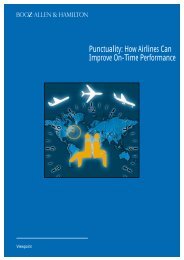The sentence
The sentence
The sentence
You also want an ePaper? Increase the reach of your titles
YUMPU automatically turns print PDFs into web optimized ePapers that Google loves.
Adverbs<br />
A. Adverbs of manner<br />
Adverbs with and without ‘-ly’: ‘carefully’, ‘fast’<br />
1. An adverb adds to the meaning of a verb. Adverbs of manner tells us how something<br />
happen: How did John behave? – (He behaved) badly.<br />
2. We form adverbs of manner by adding –ly to an adjective: slow/slowly.<br />
After a consonant, -y changes to –i: heavy/heavily.<br />
It was a slow train./<strong>The</strong> train went slowly . It was heavy rain./It rained heavily.<br />
3. We can use some words as adjectives or adverbs without adding –ly or –ily:<br />
It was a fast train. → <strong>The</strong> train went fast.<br />
Other examples are: better, best, early, hard, high, last, late, monthly, near, wide, worse.<br />
Two forms and different meanings: ‘hard/hardly’<br />
Some adverbs have two forms, one without –ly and one with –ly.<br />
<strong>The</strong>se forms have different meanings and uses: e.g. hard/hardly, last/lastly, late/lately:<br />
He played hard. He hardly played at all.<br />
Adjectives which end in ‘-ly’: ‘friendly’<br />
Some adjectives end in –ly: cowardly, friendly, lively. Lovely, motherly. Sickly, silly:<br />
Meg’s a friendly girl. John gave me a friendly handshake.<br />
If we want to use these words as adverbs we say in a friendly way/manner/fashion:<br />
Meg always greets me in a friendly way. (Not *greets me friendly/friendlily*)<br />
B. Adverbs of time<br />
Points o time: ‘Monday’, ‘this morning’<br />
1. Adverbs of time tell us when something happens. ‘Points of time’ tell us ‘exactly when’:<br />
e.g. today, yesterday, this/next/last week, on Monday, at 5 o’clock.<br />
2. We can refer to days of the week without this, last, next or on:<br />
I’m seeing him Monday. (= this/next/on Monday). (Not *I saw him the Monday.*)<br />
I saw him Monday. (= last/on Monday). (Not *I saw him the Monday.*)<br />
3. This morning, etc. (Not *today morning* *today afternoon* etc.) can refer to:<br />
- now: I feel terrible this morning.<br />
- earlier: I spoke to him this morning.<br />
- later on today: I’ll speak to him morning.<br />
4. Note: tonight, tomorrow night and last night (Not *yesterday night*).<br />
5. Note: the day before yesterday, the day after tomorrow (in the evening), etc.<br />
6. We do not use the in phrases like next Monday, last Monday: I’ll see him next Monday.<br />
7. We normally put time references at the end of a <strong>sentence</strong> or clause, but we can also put<br />
them at the beginning: (This morning) I went to the dentist (this morning).<br />
39




